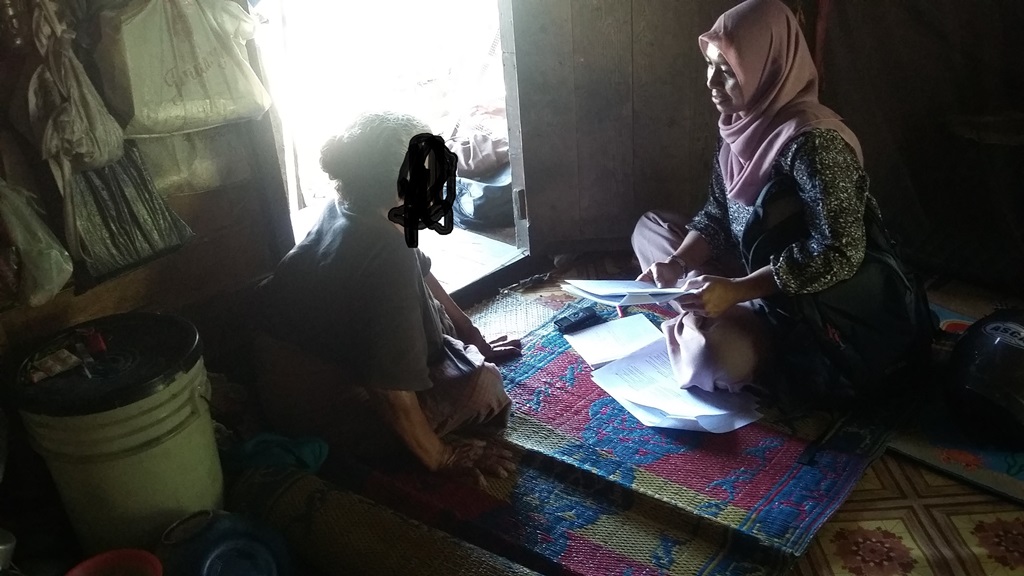The Evaluation Study of ASLURETI Program in Aceh Jaya 2017
Wednesday, 17/05/2017Aceh Jaya

The ASLURETI (High-Risk Elderly Social Assistance) is a breakthrough program conducted by the Aceh Jaya District Government in implementing the Social Assistance for the Abandoned Elderly (ASLUT) policy from the Indonesian Ministry of Social Affairs. ASLUT is a social protection program for the elderly (over 65 years old) who are not potential and neglected with a money transfer of IDR 200,000 per elderly per month. Since the number of beneficiaries is very restricted due to a limited budget, the ASLUT could not comprehensively reach all vulnerable elderly people in Indonesia.
The Aceh Jaya District Government developed ASLUT with ASLURETI by providing cash assistance to every elderly over the age of 70 years as much as Rp. 200,000 per month whose donations accumulated 600 thousand for 3 months or 400 thousand for 2 months. This program has been running since 2015 now and has covered as many as 2,709 elderly beneficiaries in 2017. The schedule for disbursing ASLURETI cash assistance is prior to the fasting month or before the Meugang day. The Meugang or Makmeugang is a tradition of cooking meat and enjoying it with family, relatives, and orphans by the people of Aceh. Usually, this tradition of slaughtering a sacrifice in the form of a goat or cow is carried out three times a year, namely Ramadan, Eid al-Fitr, and Eid al-Adha.
The change in leadership of Aceh Jaya raises concerns about the continuation of the ASLURETI program, whether the current government has the same commitment to social protection for the elderly, or otherwise, the program could not be sustainable. For this reason, an evaluation study of the ASLURETI program as a policy product is needed in order to gain empirical knowledge about the implementation and outcomes of policies. SurveyMETER had the honor to conduct the study.
The main objective of the study is to collect evidence of the ASLURETI effectiveness program or the suitability of policy implementation and outcomes to overcome old-age poverty. To achieve this, key questions that may answer the study are formulated as follows: How is the implementation of the old-age pension program? What are the main challenges in implementing the program? What are the benefits of this program for the elderly, their household, and the community?. If the households have access to other social assistance programs, how do old-age pensions complement this initiative? What are the unfolded stories in beneficiary households over time? And what are the experiences of other household members from this program?
The study location is at 36 villages of 9 sub-districts in Aceh Jaya where each village was selected based on geographical conditions: coastal and non-coastal. It applied two research approaches (mix methods): quantitative and qualitative studies. The quantitative study was conducted through face-to-face interviews using the CAPI system, while the qualitative one was done through in-depth interviews with informants. The quantitative respondents were 540 elderly beneficiaries of the program, while the qualitative ones were 38 informants from various categories including representatives from BAPPEDA, the Department of Social Affairs, and the Office of Manpower and Population Mobility (Disnakermobduk). The field study implementation commenced at the end of March 2017, including a pilot study that was conducted on April 11-14 2017 in Aceh Jaya District, while the main field data collection was carried out from 6 May to 26 May 2017. (JF)